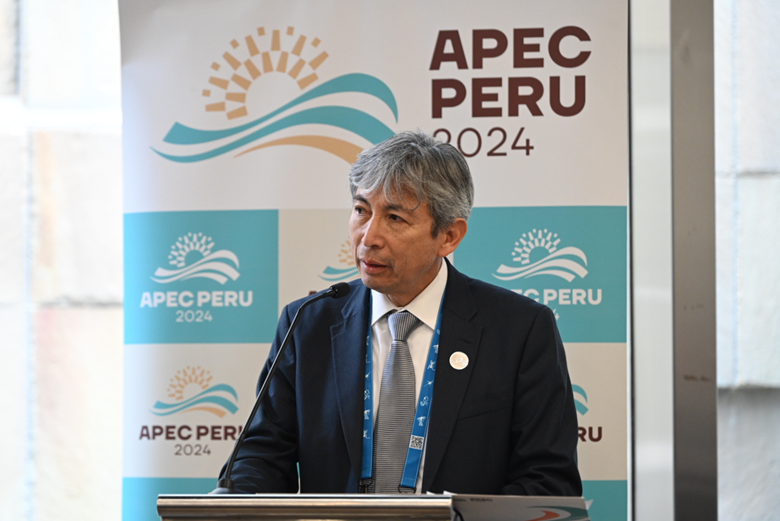
The strengthening of economic and financial systems is necessary to enable the promotion of environmental, social and economic sustainability.
Sustainable finance has been one of the main priorities on the APEC 2024 Finance Ministers' Process agenda. Since the beginning of the year, we have held workshops related to domestic carbon pricing and non-pricing measures, sustainable energy transitions and sustainable infrastructure financing, as well as we have launched an APEC space for coordination between the public and private sectors and international organizations to share information and capacity building on sustainable finance that we would call the "Sustainable Finance Initiative".
Currently, we are facing unprecedented global environmental challenges such as climate change, biodiversity loss and natural resource scarcity. These challenges not only pose a threat to the environment, but also have significant implications for economic stability and the well-being of the populations of our economies. Hence, there is the importance of recognizing the interconnection between economic growth, environmental sustainability and social well-being.
The demand for environmentally sustainable investment options has been growing worldwide. Examples are well known and include the increase in technologies to promote sustainable energy transitions, the reduction of deforestation, more sustainable transportation, sustainable infrastructure, preservation of biodiversity, among others.
Therefore, the strengthening of economic and financial systems is necessary to ensure their efficient adaptation to new paradigms that will make it possible to promote environmental, social and economic sustainability.
In this context, public policies are a transformative tool for integrating sustainability into the financial framework of our economies. Strategic planning for this integration is not only an ethical imperative, but also an economic necessity.
Providing a predictable framework for sustainable finance is one such policy. The development of sustainable finance involves creating the ecosystem and conditions that allow for the identification of alternatives to mobilize resources in a scalable manner and for the actors in the financial and market systems to operate and increase, for example, the flow of funds toward sustainable financing.
In this sense, by ensuring the harmonization of economic and financial activity to promote their competitiveness, the continuous improvement of productivity and the efficient functioning of markets, our finance ministries play a key role in enabling the sectoral transformations necessary for sustainable and fair development.
The economic sectors will require our support in overcoming barriers to address current challenges, as well as to take advantage of opportunities related to sustainability. Aware of these challenges, our actions to favor financing enabling solutions will be of utmost relevance.
Within this framework, the design of holistic strategies on sustainable finance, which allow the effective articulation of efforts, is crucial for a better macro prudential management of the risks related to the climate and environmental challenges we face.
These strategies are necessary to prevent operating in isolation, but rather in synergy and in an orderly manner to create an ecosystem that enhances sustainable development through a set of mixed policies with a diversity of instruments according to domestic circumstances.
The implementation of these policies and instruments used to promote sustainability, such as bonds, taxonomies and green financing mechanisms bring with them challenges, which may be regulatory, technical, financial, market or another, but also opportunities.
Therefore, feedback on both the design and implementation of policies, strategies and instruments based on the evidence and recommendations generated in the process is essential, as well as an interdisciplinary approach, capacity building and knowledge exchange that promotes creativity and innovation in the search for solutions that result in better decision-making.
In this regard, solid governance frameworks are required to guarantee effectiveness, legitimacy and transparency in order to maximize the impact of our actions.
Being appropriately prepared to address emerging challenges and seize opportunities along the path to sustainable finance is essential. Public policies are thus a powerful tool that can guide us. If designed and implemented correctly, they can transform our economies and societies.
By sharing strategies and experiences, we are laying the foundations for a more sustainable future in our economies.






